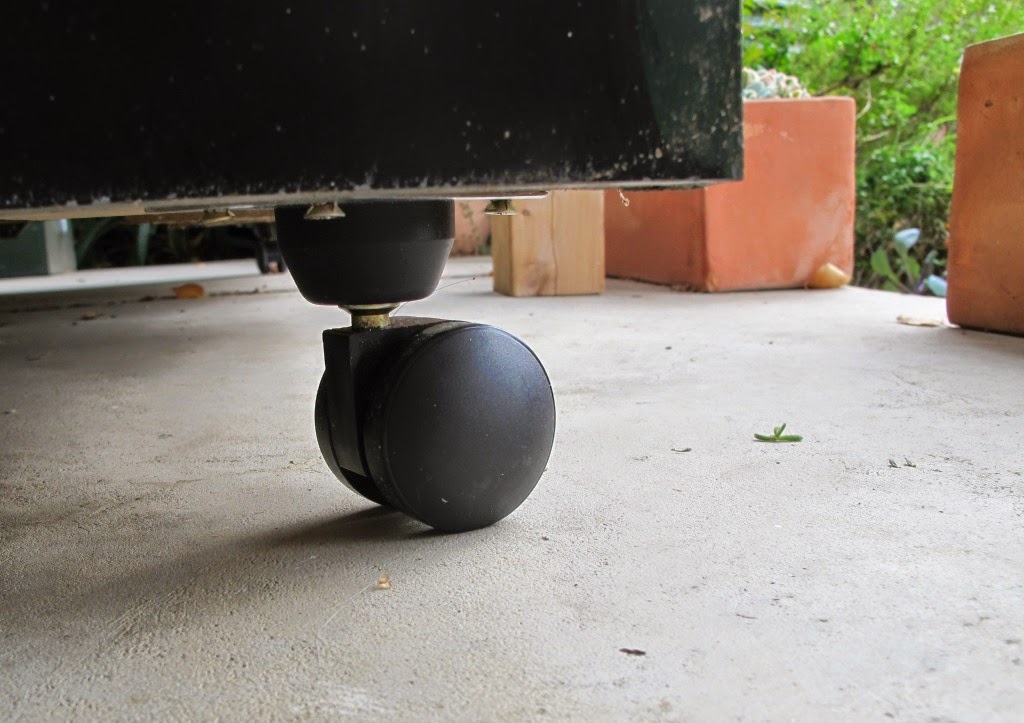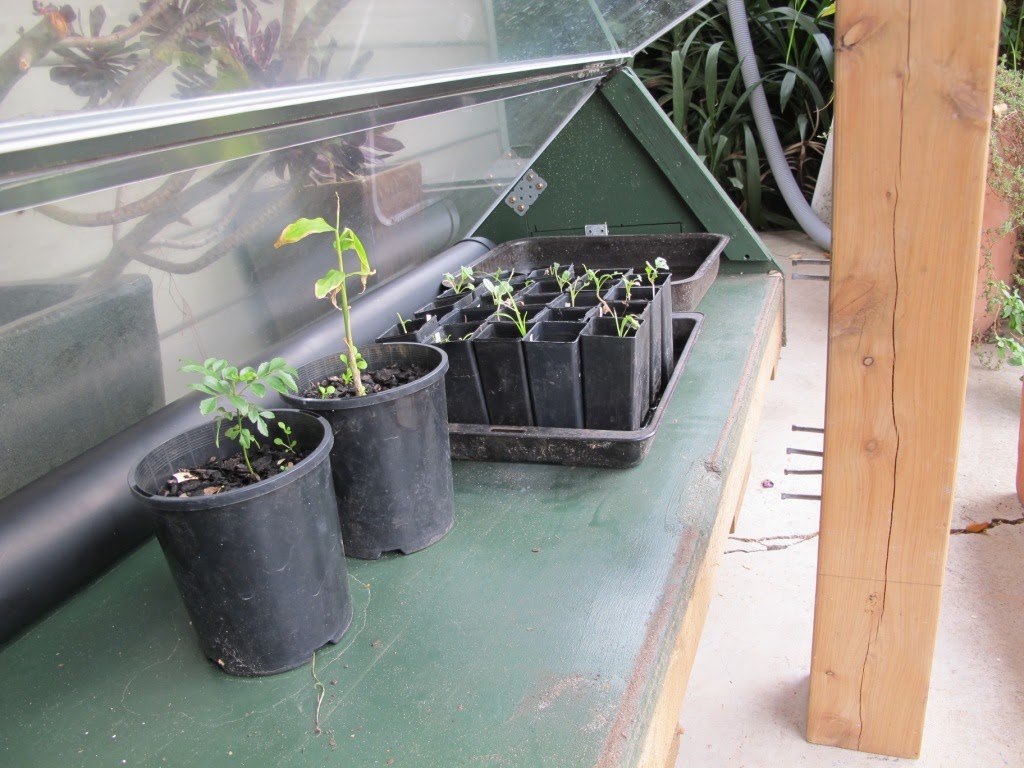One of my favourite parts of growing my own veggies is experimenting with lesser known plants that go beyond your normal standard beans, tomatoes, eggplants and chillies. Luckily for this article most of the plants I have been meaning to feature here have miraculously survived the extreme heat we have had in Melbourne last week. So here goes a list of my top unusual edibles.
Japanese Burdock.
I usually refer to this by its Japanese name 'Gobo'. I came to know this vegetable on my trips to Japan including two years living there. I got my original plant from a Japanese native, Melbourne resident and avid back yard gardener who was selling plants at the annual Box Hill Japanese Festival.
The edible part in Japan is the root. There are various methods to encourage the growth of a single straight ridiculously long tap root using poly tubes etc. But I am lazy and just grow it in a pot and work around the wonkyness of what ever grows. (Based on my experience do not attempt to grow in the ground unless you have very sandy soil or you want to excavate half the garden to get the root out). The plant is a bi-annual that dies off over winter and seeds every second year. The leaves are quite tasty and subject to attack by various pests- including large patrolling feathered variety. The leaves grow large and broad so it needs a lot of space to grow. Based on these factors I am growing them in a dedicated planter. The seeds are prickly and sticky so will end up stuck to you and your pets! (Apparently they were the inspiration for
velcro!). My main use for burdock is to saute with carrot, sesame, mirin sugar and soy sauce. It has a fantastic nutty taste.
 |
| Japanese burdock (looking a little wilted from the heat) |
2. Tomatillos.
This is my first year growing tomatillos from seed I saved from
tomatillos sourced from the Gasworks Farmers markets, so I have no idea what the outcome of this experiment will be. Wikipedia tells me you need more than one plant to germinate fruit. I have two plants that are looking fantastic. Last year I made green salsa from my purchased tomatillos.
 |
| tomatillo plants |
Bitter melon.
This is another experiment inspired by my travels in Japan, to Okinawa where 'goya' (as its known) is the national dish (Okinawa is currently politcally part of Japan- but culturally and ethnically quite different). This is my second attempt to germinate and grow goya (it needs warm weather) but in my first attempt it was too late in the year to flower and fruit. The birds killed one plant so I am sowing more seeds in case it needs cross pollination.
 |
| bitter melon seedling |
Water chestnuts.
These were gifted to me by a work colleague as a single plant/ corm last year. The plants need to be submerged during the warmer summer months and are harvested when they die back and dry off in the autumn. I am looking forward to my first harvest later year and am planning a water garden (water cress and water chestnuts) in my soon to be removed bath (renovations are about to kick off) next spring.
 |
| water chestnuts |
























